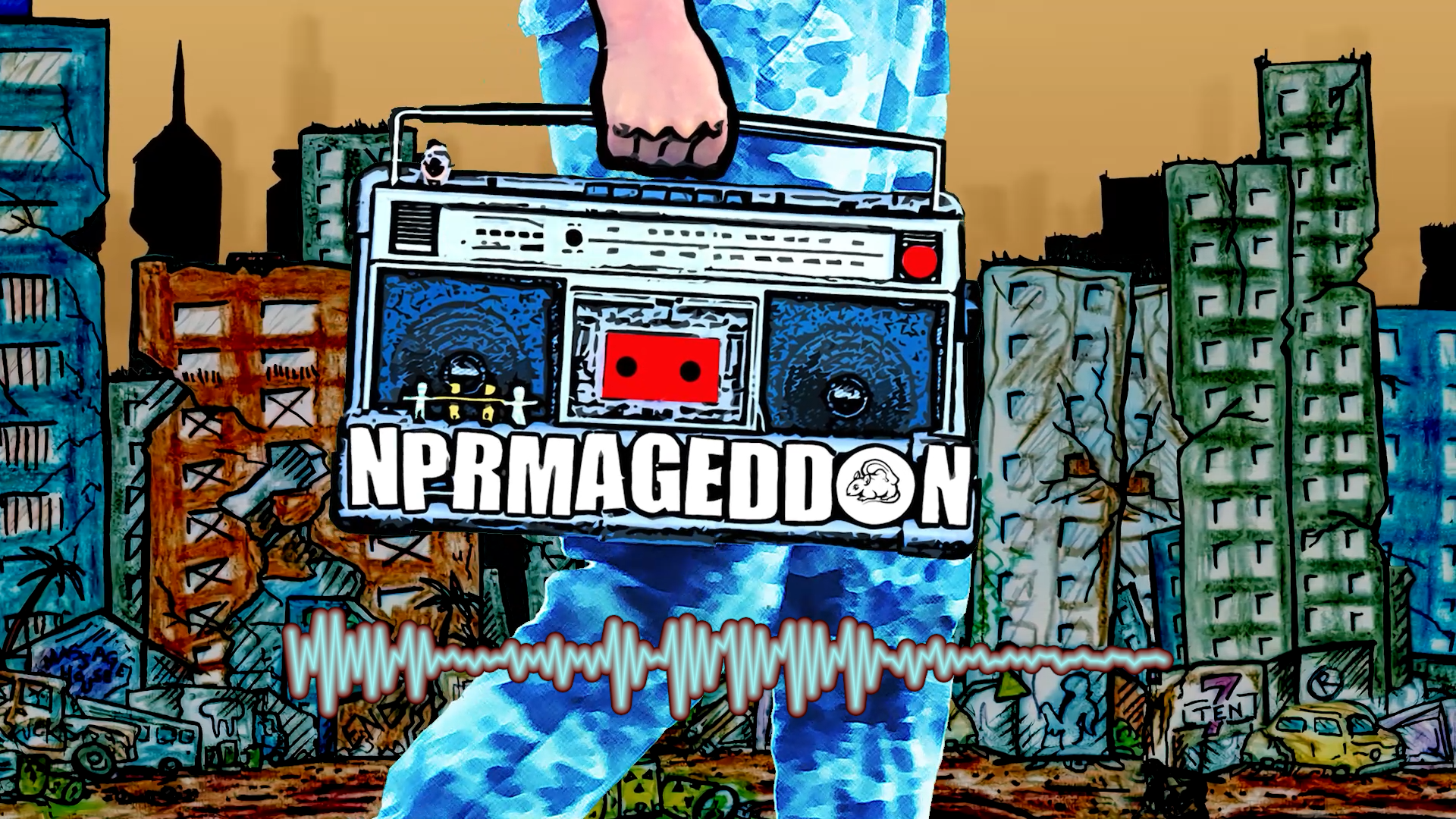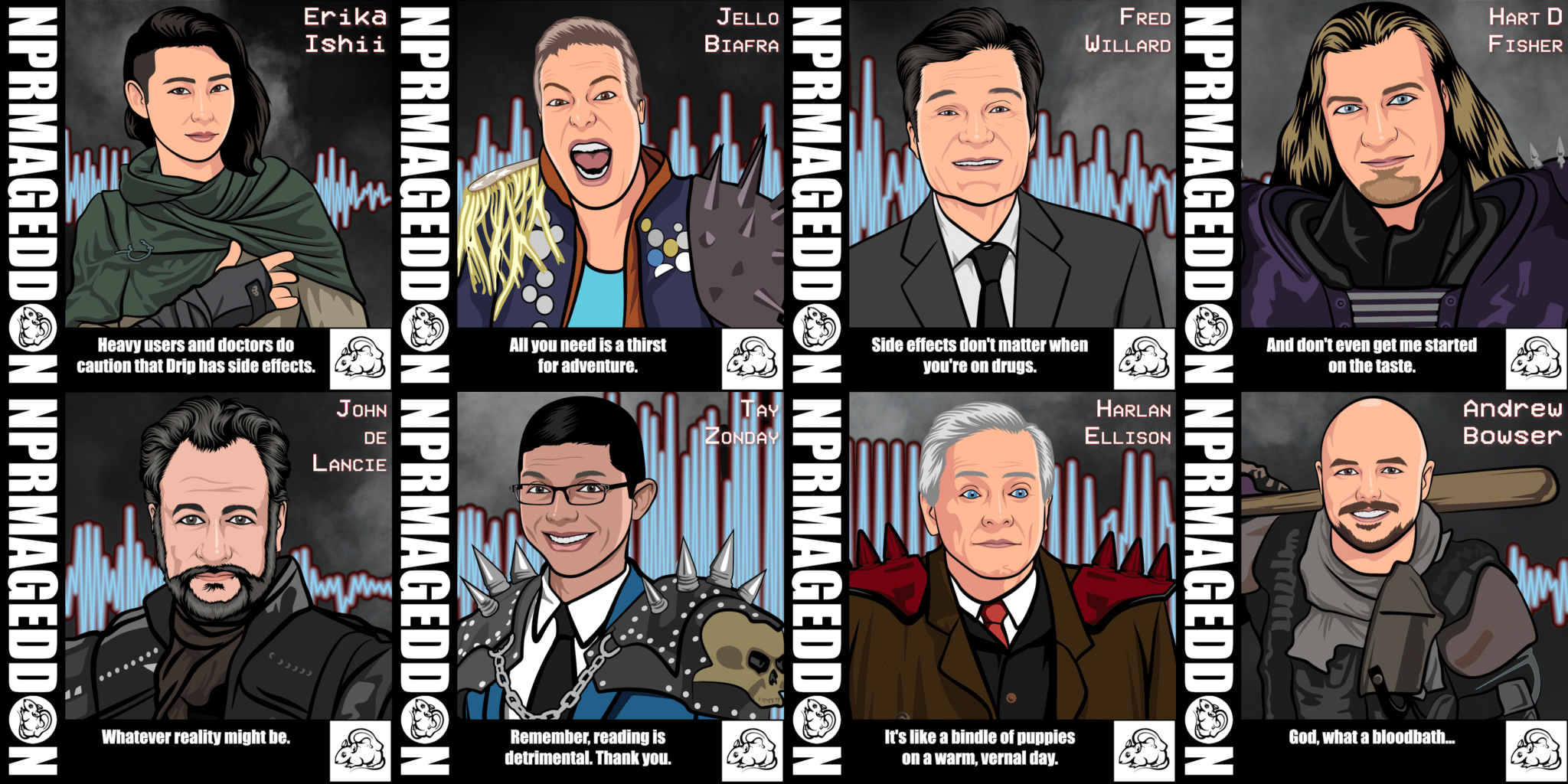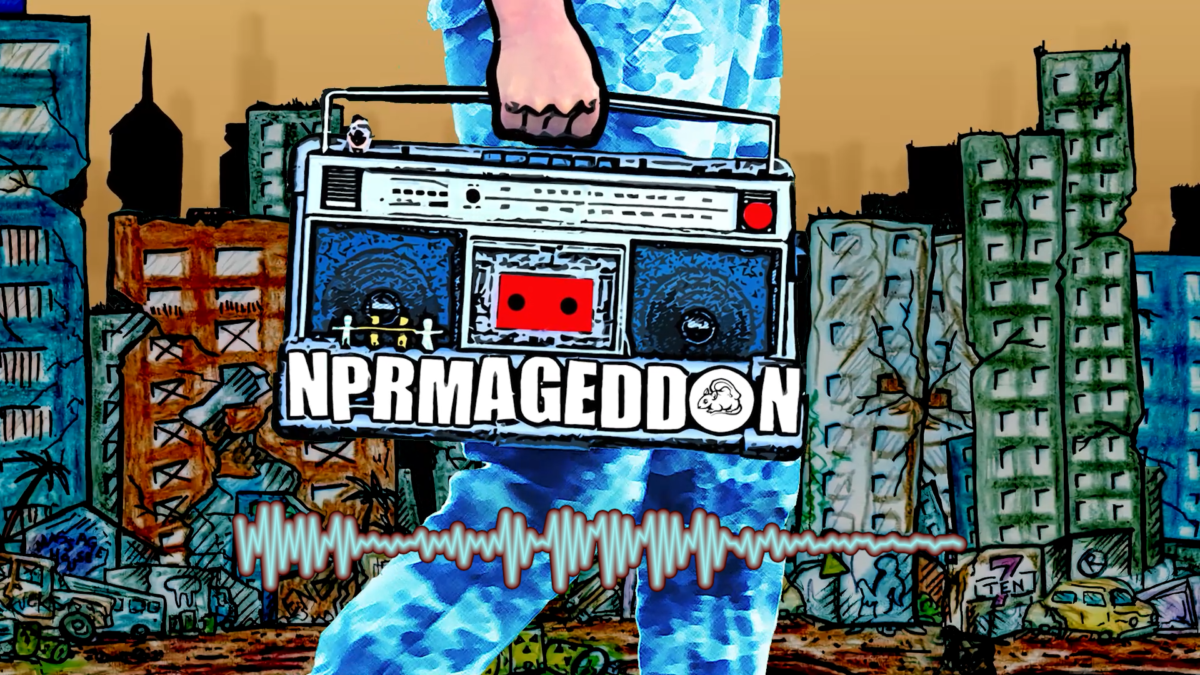
We met at the USC School of Cinematic Arts. That’s right: film school. And no proper film school education would be complete without Blake Snyder’s Save the Cat! It tore open the veil of Hollywood screenwriting and allowed us to break complex narratives into bite-sized, easily digestible chunks thanks to the legendary Beat Sheet.
Flash-forward to several years ago. Inspired by audio fiction juggernaut Welcome to Night Vale, we decided to chart our own audio odyssey in the horror and science fiction space as writers and producers. The result is NPRmageddon, which you can listen to here.
Our premise is right there in the title. NPRmageddon is what National Public Radio will sound like after the apocalypse. We based our storytelling on how modern media operates and what National Public Radio sounds like now.
But how could our film school Save the Cat! education inform our writing of the series? In fact, as we set out to craft our first sketches, we mined the original book for any nuggets of wisdom. We eventually drilled down into a portion of the Beat Sheet that allowed us to discover a Grand Unified Theory for how our public radio satire could function. And it all comes down to fun and games.
As Save the Cat! devotees know, Fun and Games encompasses the portion of the story that you see on the movie poster—the part that makes you say, “Wow! That looks cool!” It’s the essence of the thing—the raison d’être, if you will. It’s the not-life-or-death and the not-particularly-plotty elevator pitch—the irresistible “what if?” encapsulated in a sentence or image. As Mr. Snyder so eloquently put it, it’s the promise of the premise.
We think Fun and Games is an extraordinarily powerful distillation. And the more we listened to news stories and consumed modern media, the more that idea of distillation kept presenting itself.
NPR stories have a minute or two—sometimes even less—to communicate what’s important, to argue for their raison d’être, their reason for being. Why do we care? What about this is interesting or newsworthy?
One way to structure a response to these “So what?” questions—questions that must be asked as our media landscape relentlessly expands and our attention spans relentlessly shrink—is to make fun and games the main course of your media meal.

Take a look at news stories on TV or on a podcast or in an article. A thin crust of plot will pull you through narratively—the American President frequently serves as a main character with a continuous arc, for example—but the “creamy filling” that really draws you in are the one-off stories. These stories could be about a tiny fishing village in Norway or the world’s highest-calorie hamburger, but what they excel at is giving you “the good stuff” right up front: the fun and games.
And they have no other choice, really. Films (and theatrical films in particular) have more of a captive audience, but the act of changing one’s consumption of news could be as close as a click or swipe away. This imperative to deliver instant gratification is even more amplified in newer formats like TikTok.
But enough about the philosophical underpinnings, let’s get to our own fun and games!
Our approach with NPRmageddon was to give our listeners the good stuff—to lean on one-off stories heavy on science fiction and horror tropes, but to push those tropes through the lens of public media journalism. After all, that is the promise of our premise.
Step through a typical episode of NPRmageddon, and you’ll find a delicious selection of news-y mayhem worthy of any headline-grabbing lineup from the real world—from marauding mutants to rogue AI’s to parasitic pulsating brains. The first sketch of the show depicts a violent coup as the scepter of presidential power changes hands. This is the stuff people came to the show to consume: the fun, creamy filling.
As we surveyed other audio fiction series throughout the course of our writing and recording, we found plenty of innovative storytelling techniques to draw inspiration from in this burgeoning field that is just starting to come into its own. On the other hand, there are some series that lean too heavily in the opposite direction. They provide too much filler and not enough filling. Or to put it another way, too much set-up and not enough fun and games.
You know the type of story… a small town with a mysterious secret that is hinted at but never fully divulged for episode after episode as a narrator shares intriguing but ultimately vacuous doublespeak like “sin is never simple” and “the funny thing about memories is they tend to persist.” Like, yeah, that’s the definition of a memory.

We wanted to be more in-your-face and a little more punk rock about our depiction of post-apocalyptic “Lost” Angeles. Modern news can’t do the “small town with a mysterious secret” cocktease for hours on end, and we didn’t want to, either. We wanted to give people the good stuff! That sense of instant gratification is embodied in our mercurial radio station host who acts as ringleader to our band of merry misfits, and it’s embodied in how we approached the show.









